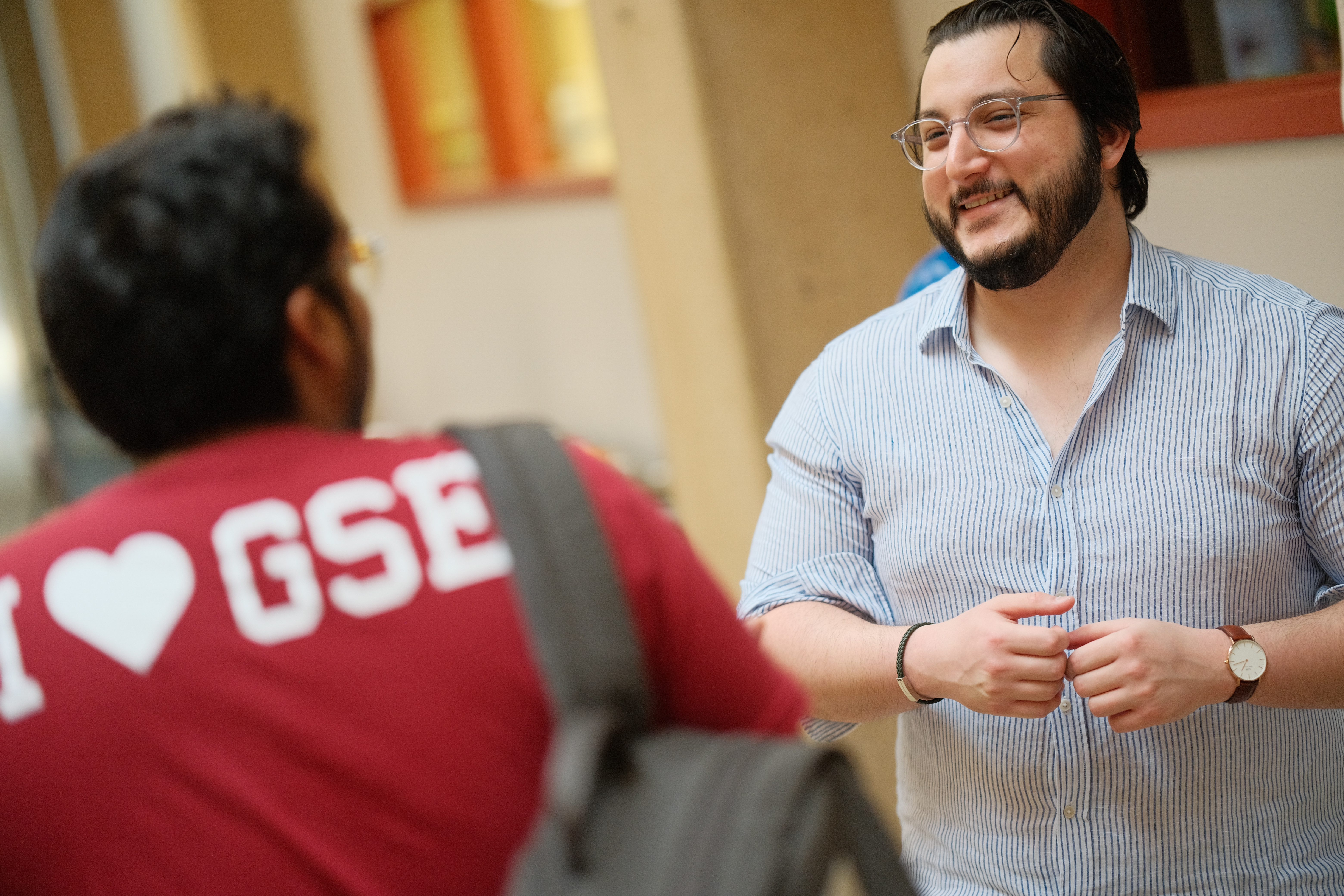
Othman Bensouda Koraichi, MS ’23, wants to use his degree in education data science to address educational inequities in his home country of Morocco. (Photo: Ryan Zhang)
Othman Bensouda Koraichi was working toward becoming a data scientist in Morocco when he applied to a new master’s program at Stanford Graduate School of Education (GSE), driven by some of the severe educational inequalities he saw in his home country.
“I grew up in Morocco with this idea that we have a small elite that is really educated, and that the rest of the country is essentially struggling,” Bensouda Koraichi said. “On a day-to-day basis, you would see kids begging for money in the street instead of going to school.”
As part of the inaugural cohort of the GSE’s Education Data Science (EDS) program, Bensouda Koraichi enrolled because he wanted to explore ways to use data to address the inequities he saw. “I think that, as a country, Morocco lacks people with the combined knowledge of data science and education, which is essential to make the right decisions,” he said. “I want to be a leader in that effort.”
His capstone project, which centered on how machine learning can be used to predict and hopefully prevent student dropouts, was one of a dozen presented by the cohort’s new graduates at the first-ever EDS Symposium on June 15 at the Center for Education Research at Stanford.

Othman Bensouda Koraichi, MS ’23, wants to use his degree in education data science to address educational inequities in his home country of Morocco. (Photo: Ryan Zhang)
Other students’ topics included racial imbalances between public school districts' attendance zones, why data equity matters in educational program evaluation, restorative classroom management practices, and family stresses during the pandemic.
Throughout their time at Stanford, students took courses at the GSE as well as technical courses across campus, said Sanne Smith, director of the EDS program and a lecturer at the GSE.
“They have immersed themselves in the topics close to their hearts, ranging from early childhood education to the use of edtech in the classroom,” she said. “All the while, they have been thinking about how to harness the power of data to work toward positive change in our educational landscapes.”
Initially meant to be an 18-month program, several EDS students successfully petitioned to add an additional quarter so they could spend more time researching their respective projects.
Elena Pittarokoili, another member of the EDS class of ’23, investigated whether getting personal development certificates — think wine tasting or building sustainable relationships — has a positive effect on employment. Turns out, based on her project’s findings, it does.
“I want people to use this information as encouragement to start learning about whatever they’re interested in, whether it’s career-related or not,” Pittarokoili said. “As we move into the ChatGPT era, it will be difficult for people to be authentic and different. I think being driven by curiosity will become more and more important.”
Moving forward, Pittarokoili — who often includes the fact that she trained as a ballerina on her resume — will be joining Age of Learning, a California-based edtech firm, as a data analytics engineer on its efficacy research team.
“We spent this whole year working on this project,” she said. “So being able to share both my results and excitement with others at the symposium was an amazing experience. This capstone isn’t just a project for me, it’s a part of who I am.”